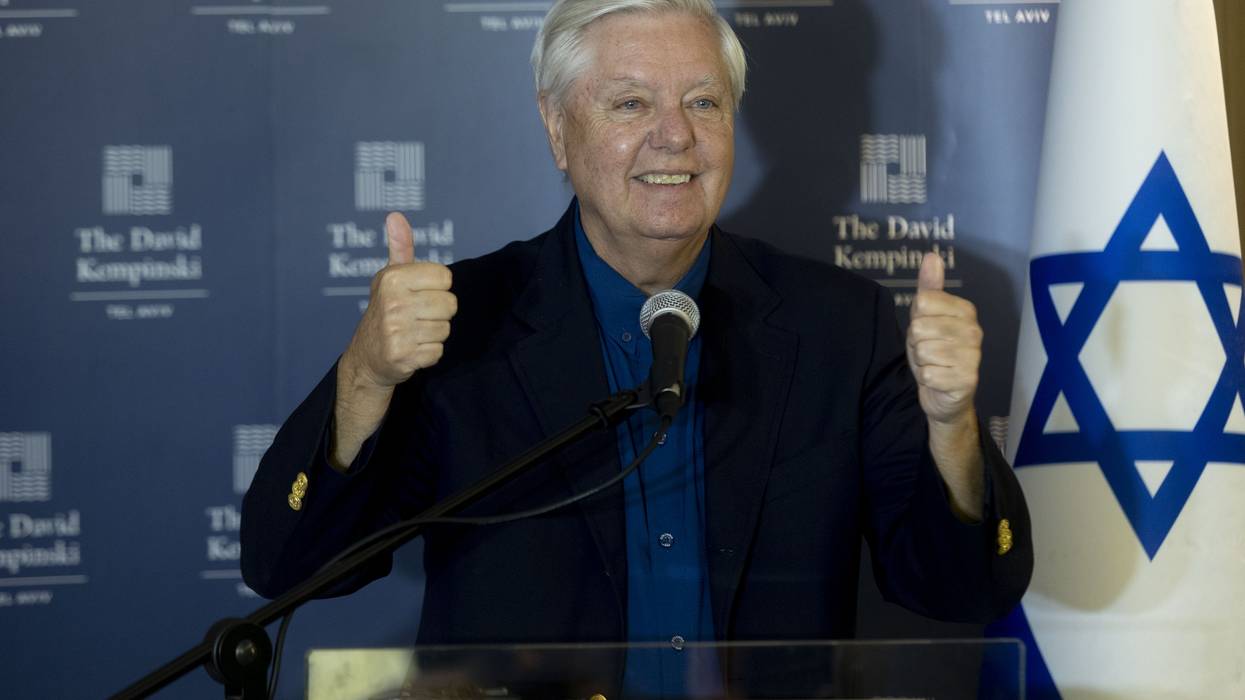September, 26 2008, 01:20pm EDT
CARE Position on Middle East Quartet Progress
NEW YORK
On the
occasion of the meeting of the Middle East Quartet (composed of Russia,
United States, European Union and United Nations) in New York this
week, CARE urges the international community and the parties to the
conflict to take immediate steps to alleviate the deepening
humanitarian crisis in the West Bank and Gaza. The Quartet identified
2008 as a crucial year for the Middle East peace process and the period
in which to realize agreements made at the Annapolis Conference on
November 22, 2007.
Earlier this year, leading international
humanitarian organizations expressed concern about the humanitarian
crisis in the Middle East and how impediments to movement and access
were inhibiting the delivery of aid and services. Six months later,
access issues continue to hinder CARE's ability to adequately meet
people's basic needs. Other international nongovernmental organizations
report similar difficulties in carrying out their humanitarian and
development projects and operations and also express concerns about the
deterioration in living conditions for ordinary civilians in both Gaza
and the West Bank.
CARE urges the Quartet to redouble its efforts to press all parties to:
- Enforce
the full implementation of the 2005 Agreement on Movement and Access,
which was announced by U.S. Secretary of State Condoleezza Rice in
Jerusalem on November 15, 2005, as a first step toward addressing
obstacles to access and movement. - Work with the Israeli
and Palestinian authorities to ensure security concerns are addressed
and establish procedures as a first step toward reversing the policy of
closure, to manage the crossings and restore full humanitarian and
commercial access to Gaza, including specifically:- Access to urgent medical treatment abroad;
- Essential maintenance and rehabilitation of public services (water, sewage, electricity, public health);
- Resumption
of normal fuel imports to enable Gaza's electricity plant to function
and ambulances and ordinary transport to run; and - Ease of movement in and out of Gaza for humanitarian agencies' staffs.
- Agree to a timeline to:
- Widen the definition of humanitarian goods and needs;
- Provide greater support for Egypt to negotiate an opening to the Rafah crossing;
- Secure the opening of Karni crossing; and
- Reactivate all stalled humanitarian and development projects.
CARE is a leading humanitarian organization fighting global poverty. We place special focus on working alongside poor women because, equipped with the proper resources, women have the power to help whole families and entire communities escape poverty. Women are at the heart of CARE's community-based efforts to improve basic education, prevent the spread of HIV, increase access to clean water and sanitation, expand economic opportunity and protect natural resources. CARE also delivers emergency aid to survivors of war and natural disasters, and helps people rebuild their lives.
LATEST NEWS
Will Others Follow? Spain Denies Use of Its Bases to US Military for Iran Attacks
"Europe should close all of the US bases on its soil," said one US foreign policy critic.
Mar 02, 2026
The Spanish government has blocked the US military from using its bases to launch attacks on Iran, forcing American aircraft to leave the country.
Speaking at the annual Mobile World Congress conference in Barcelona on Sunday, Spanish Prime Minister Pedro Sánchez denounced that US war on Iran, which was completely unprovoked.
"Remember that one can be against a hateful regime, as is the case with the Iranian regime," Sánchez said, "and at the same time be against a military intervention that is unjustified, dangerous, and outside international law. That one should be against a war initiated without authorization from the US Congress or the UN Security Council."
Spain’s Prime Minister Pedro Sánchez on Iran:
“Remember that one can be against a hateful regime, as is the case with the Iranian regime … and at the same time be against an unjustified, dangerous military intervention outside of international law.” pic.twitter.com/Nv0V4pfXeG
— Anonymous (@YourAnonCentral) March 2, 2026
According to a Monday report in the Guardian, Spanish Foreign Minister José Manuel Albares emphasized after Sánchez's speech that Spanish military bases will not be used "for anything that is not in the agreement [with the US], nor for anything that isn’t covered by the UN charter."
In the wake of the Spanish government's announcement, anti-war campaigners demanded that other European nations take similar stances.
"Europe should close all of the US bases on its soil," wrote David Adler, co-general coordinator of Progressive International. "There can be no 'strategic autonomy' while the United States maintains the ability to commit wanton violence from imperial installations on European territory."
Alex Soros, chairman of Open Society Foundations, said that more nations should follow in Spain's footsteps in trying to curb US aggression.
"Why aren’t more Europeans standing up to an illegal war!" Soros wrote. "Same with Canada! They make nice speeches at conferences, but do little. Spain is becoming the leader of the free world!"
Clare Daly, an Irish former member of European Parliament, encouraged her country to do its part to deny the US a base for airstrikes.
"Spain has denied the US military any use of its territory to carry out unlawful acts of aggression against Iran," Daly wrote. "Yesterday [Human Rights Organization] Shannonwatch documented two US Air Force Hercules C-130H aircraft landing at Shannon Airport. Is the government going to do anything to uphold Ireland's international responsibilities?"
Alan McLeod, senior staff writer at MintPress News, quipped that the Spanish government "continues to provide more resistance to Trump's agenda than all Democrats combined."
Keep ReadingShow Less
'Unlike the United States,' Says Security Chief, Iran 'Has Prepared Itself for a Long War'
"Trump plunged the region into chaos with his 'delusional fantasies' and now fears more American troop casualties," said the secretary of the Iranian Supreme National Security Council, Ali Larijani.
Mar 02, 2026
As US President Donald Trump unleashed a barrage of bombings on Monday in what is rapidly spiraling into a regional conflagration, Iran's security chief said the country is ready for a long war, but questioned whether the US is prepared for the same.
“Trump plunged the region into chaos with his ‘delusional fantasies’ and now fears more American troop casualties,” said Ali Larijani, the secretary of the Iranian Supreme National Security Council, in a post on social media Monday. “With his delusional actions, he turned his self-made 'America First' slogan into 'Israel First' and sacrificed American soldiers for Israel’s power-hungry ambitions.”
"Iran, unlike the United States, has prepared itself for a long war," he said.
Just before US-Israeli strikes began this weekend, Iran reportedly offered Trump a deal that included Iran giving up all of its enriched uranium and full cooperation with international nuclear inspectors—terms even more conciliatory than those in the original Iran nuclear agreement that Trump ripped up during his first presidency.
But now the US and Israel have taken out several senior Iranian officials, including Supreme Leader Ayatollah Ali Khamenei, and included what some observers described as the "carpet bombing" of Tehran, including heavily populated civilian areas, Larijani has declared diplomacy off the table.
"We will not negotiate with the United States," he wrote on social media, disputing reports that he'd restarted talks with Washington.
With diplomatic avenues once again blown up, Iran has shifted toward making a war maximally costly for the US and Israel and deterring its other Arab allies from joining.
At least four US military personnel have already been killed, and four others seriously wounded in attacks at military bases in Kuwait. Trump has acknowledged that more casualties are "likely," which may further heighten the backlash among the American public, which already largely does not support the war, according to a poll released this weekend.
All six of the Gulf nations that host US military bases—including Saudi Arabia, the United Arab Emirates, Qatar, Oman, and Bahrain—have been hit with Iranian missiles and drones, with some attacks spilling into civilian areas—including Dubai's and Kuwait’s international airports, as well as luxury hotels and residential skyscrapers, which resulted in at least three reported civilian deaths.
Israel has also been pummelled with artillery from Iran and its allied militia Hezbollah in Lebanon. Strikes from Iran have reportedly killed at least 11 people and left dozens more injured in Israel, according to local authorities. Israel has retaliated with a massive attack on Lebanon, which the Lebanese health ministry has said killed at least 31 people.
While Iran lacks the military might of the US and Israel, it is likely seeking to deploy its arsenal of cheaper, older drones to deplete the two powerful countries' expensive air defense systems and force them into a war of attrition, according to Amos C. Fox, a professor at Arizona State University’s Future Security Initiative, and Franz-Stefan Gady, an associate fellow for cyber power and future conflict at the International Institute for Strategic Studies.
"The attackers do not want to find themselves trapped in an attritional slugfest, where they burn through hundreds of millions of dollars per day, exhaust their stocks of the most advanced interceptors, and face the prospect of a prolonged war—not by losing on the battlefield but by simply exhausting their anti-air weapons in the coming days and weeks," they wrote in Foreign Policy magazine on Monday.
“The attackers do not want to find themselves trapped in an attritional slugfest, where they burn through hundreds of millions of dollars per day, exhaust their stocks of the most advanced interceptors, and face the prospect of a prolonged war—not by losing on the battlefield but by simply exhausting their anti-air weapons in the coming days and weeks,” they continued. “The United States and its allies may eventually win—but at what price in terms of material and treasure? Iran knows that Israeli and US theories of success are premised on a quick and decisive strike campaign. Iran’s strategy will therefore be to play for time, rather than operate in a way to support the US-Israeli timeline.”
Cranking up the pressure further, Iran has also declared that "no ship is allowed to pass" through the Strait of Hormuz, which handles around 20% of global oil shipments. Prices have already begun to spike, and shipments have been canceled. Financial analysts have predicted that the closure of the strait could drive the price of a barrel to nearly double, potentially triggering global economic instability.
While predicting that the war would be over in “four to five” weeks on Monday, Trump acknowledged the possibility for it to go “far longer than that,” saying, “We’ll do whatever.” He also said he would not rule out a deployment of ground troops.
Defense Secretary Pete Hegseth insisted that this war, which has already claimed the lives of nearly 600 Iranians, would not be “endless” like the war in Iraq, which dragged on for nearly a decade and is estimated to have killed around half a million Iraqis.
However, after killing Khamenei, the Trump administration has provided little clarity on its military objectives. Meanwhile, their rationalizations for the conflict—including claims that an attack on US troops from Iran was imminent, and that it was on the verge of acquiring a nuclear weapon—have proven untrue.
Trump has also admitted to Jonathan Karl, the chief Washington correspondent for ABC News, that many of the leading "candidates" to take over the country "are all dead" from US strikes.
Though Trump has said his goal is to secure the "freedom" of the Iranian people, international experts say decapitating its government is more likely to empower its most authoritarian elements or create a mad, violent scramble for power.
"The two most likely outcomes for Iran are the imposition of an even more ruthless regime controlled by the security apparatus and its new collective leadership or a fragmentation of the country, perhaps precipitated by tension between the military and the Islamic Revolutionary Guard (IRGC)," said Daniel Brumberg, non-resident senior fellow at the Arab Center in Washington DC. "Both could also ensue at once."
Shireen Hunter, an Iranian political scientist at the Prince Alwaleed Bin Talal Center for Muslim-Christian Understanding, said that permanent destabilization may be the goal for the US, and—more importantly—Israel, which views Iran as its primary antagonist in the region.
“Slogans such as ‘freedom for Iranians’ and ‘Make Iran Great Again’ are meaningless. Do they want Iran to remain as a unified country? I have my doubts,“ she said. ”Saddam Hussein once said that five small Irans are better than one big Iran. Netanyahu agrees with that. What neither the US nor Israel wants is a strong nationalist government in Iran.“
"There is no obvious leader with the necessary qualifications to shape the nature of the new regime in Iran... any leader who comes to power by foreign intervention soon loses his or her legitimacy," she continued. "If the conflict continues, the risk of civil or even regional war is high, as is the risk of Iran's disintegration with unforeseeable consequences for regional countries."
Keep ReadingShow Less
'Cuba's Next,' Says Lindsey Graham as Illegal Trump-Israel War on Iran Kills Hundreds
"Trump 2.0 seems to be about regime change," said one observer.
Mar 02, 2026
As American and Israeli bombs kill hundreds of Iranians—reportedly including at least 180 students and others at a girl's school in Minab—Sen. Lindsey Graham said Sunday that President Donald Trump is "on a roll" and that Cuba is the next nation in the US regime change crosshairs.
In an interview on Fox News, Graham (R-SC) said prematurely that "Trump finished the job" that former President Ronald Reagan "failed to do," namely, destroy Iran's Islamist government after the overthrow of a brutal US-backed monarchy in 1979. "I am a big admirer of Ronald Reagan but I'm here to tell you that Donald Trump, in my opinion, is the gold standard for Republicans, maybe any president, when it comes to foreign policy."
"Maduro—everybody talked about him, well, Donald Trump's got him in jail," Graham said of Venezuelan President Nicolás Maduro, who was abducted along with his wife two months by invading US forces.
"Cuba's next. They're gonna fall," Graham said of the revolutionary government in Havana that's outlasted a dozen American presidents, despite decades of US-led assassination attempts, sabotage, and subversion. "This communist dictatorship in Cuba, their days are numbered."
Lindsey Graham: Cuba is next. They are going to fall. Their days are numbered. pic.twitter.com/XZd1PyIqDP
— Acyn (@Acyn) March 2, 2026
The remarks by Graham—who previously berated Trump as a "jackass," "nut job," and "loser" unfit to be commander-in-chief—come amid reporting that Trump is feeling buoyed by what he views as successful attacks on Iran and Venezuela.
"The president is feeling like, 'I'm on a roll,' like, 'This is working,'" one unnamed Trump administration official told the Atlantic's Vivian Salama over the weekend.
This, from a president who said he deplored regime change and vowed "no new wars" while running for reelection.
A day before launching the US-Israeli war of choice against Iran, Trump floated what he described as a "friendly takeover" of Cuba, prompting vehement condemnation from Havana. Cuba is already suffering under decades of US sanctions that have devastated the socialist nation's economy and the well-being of its people.
In January, Trump issued an executive order baselessly declaring that Cuba poses "an unusual and extraordinary threat" to US national security and tightening the blockade to further starve the island of fuel.
Trump 2.0 seems to be about regime change. Is Cuba next? Listen onApple: interc.pt/40A4gef Spotify: interc.pt/4aKpVqd Elsewhere: interc.pt/4l53fod@mjbusta.bsky.social @andrespertierra.bsky.social @akelalacy.bsky.social
[image or embed]
— The Intercept (@theintercept.com) March 1, 2026 at 8:56 AM
Graham has backed every single US war since he was elected to Congress in 1994 and has openly advocated regime change in Cuba for more than a decade. He has also been accused of incitement to genocide for urging Israel to "level" Gaza—whose border crossings Israel has closed again, citing the attack on Iran.
Graham's support for regime change in Iran has been condemned across the political spectrum, from progressive Democrats including Rep. Ro Khanna of California to far-right figures like the late activist Charlie Kirk—who lambasted the senator's hawkish stance as "pathologically insane" shortly before his assassination last year.
If the US does strike Cuba, it would be the 11th country attacked during Trump’s two terms in the White House. The president—who has said he feels snubbed for the Nobel Peace Prize—has bombed Afghanistan, Iran, Iraq, Libya, Nigeria, Pakistan, Somalia, Syria, Venezuela, and Yemen, as well as dozens of boats allegedly transporting drugs in international waters in the Caribbean Sea and Pacific Ocean.
Keep ReadingShow Less
Most Popular


